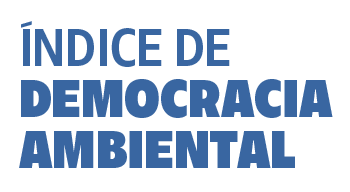In any democracy, social participation is essential to ensure that public decisions reflect the interests and needs of the population. When people can have their say, influence and oversee the policies that affect their lives, transparency is increased, trust in institutions is strengthened and it is avoided that only a few groups with specific interests benefit from decisions made by the public authorities.
Participating in decisions that affect the environment is a right. Access to social participation is a concrete condition for building fairer, more effective and more legitimate public policies, since they incorporate different points of view. It means ensuring that the whole of society, especially historically excluded groups, can influence public policies in an open, inclusive and equitable way. This involves not only being present in decision-making spaces, but having real conditions to act in safety, with adequate information, respect for diverse identities and cultures, and freedom of expression.
In the Amazon, talking about participation also means recognizing the role of environmental councils, conservation unit management councils and public environmental licensing hearings, which are key spaces for ensuring that the communities that live in and protect the territory are actively listened to. Without this listening, decisions are usually imposed and often harmful to local populations and environmental protection.
How does the Environmental Democracy Index evaluate this right?
The access to participation axis of the Environmental Democracy Index (IDA) assesses the existence and functioning of three types of participatory spaces using 35 indicators:
- Environmental Councils, in the states and at national level (CONAMA);
- Councils of Conservation Units, such as Extractive Reserves and Sustainable Development Reserves;
- Public Hearings for Environmental Licensing, which must guarantee a voice for the populations impacted by projects and/or activities.
In order to understand whether spaces for participation exist and actually work, IDA assesses whether there are adequate conditions for society to participate in environmental decisions in a fair and accessible way. In the case of environmental councils and conservation units, the indicators aim to answer questions such as: are the councils legally established? Are meetings frequent, public and well publicized? Is there provision for support for the participation of council members, such as transportation or food? Are there reserved seats on councils for women, indigenous people and traditional communities? As for public hearings, the criteria assess whether they take place in the affected territories, whether the documents are available online and whether support and information materials are made available in a language accessible to the impacted communities.
These indicators reveal whether participation is in fact inclusive or just symbolic. Because it's not enough to have "participatory spaces"; they need to be representative, active, decentralized and accessible to those who live far from the capitals.
Thus, the IDA, based on this dimension, seeks to understand the extent to which the governments of the Amazon and the federal government guarantee the rights of access to participation.
The results: who's in and who's out
The overall average for the states of the Legal Amazon in the dimension of access to participation was only 31.7 points, on a scale of 0 to 100, a performance considered "poor" in the IDA. This shows that there is still a lot to be done to guarantee democratic and effective participation. Mato Grosso (42.4) and Amapá (40.9) had the best performances, but still achieved a "fair" rating. At the other end, Acre (27.5) was classified as "bad", and Roraima (13.7) as "terrible".
The most striking statistic is that not a single entity was rated "good" or "excellent". Even the Federal Executive, which topped the ranking, scored 49.7 points, still far from an ideal scenario.
These figures indicate a structural weakness in the way society is heard and integrated into environmental decisions. There is a lack of diversity, especially of women, black, indigenous and peripheral people, both on councils and in public institutions. There is a lack of decentralization and access to information in the territories.
Why does it matter?
Without effective social participation, people's rights and the forest are at risk. When communities are not listened to, polluting projects and activities go ahead without consent, ecosystems are degraded and violence increases - especially against those who stand up in defense of the environment.
Improving participatory spaces in the Amazon means ensuring that public policies are not just made for a few groups with specific interests, but with and for the people who live in and care for the region every day. Guaranteeing access to participation means recognizing that democracy can only be built with diverse voices, which need to be valued and protected.




